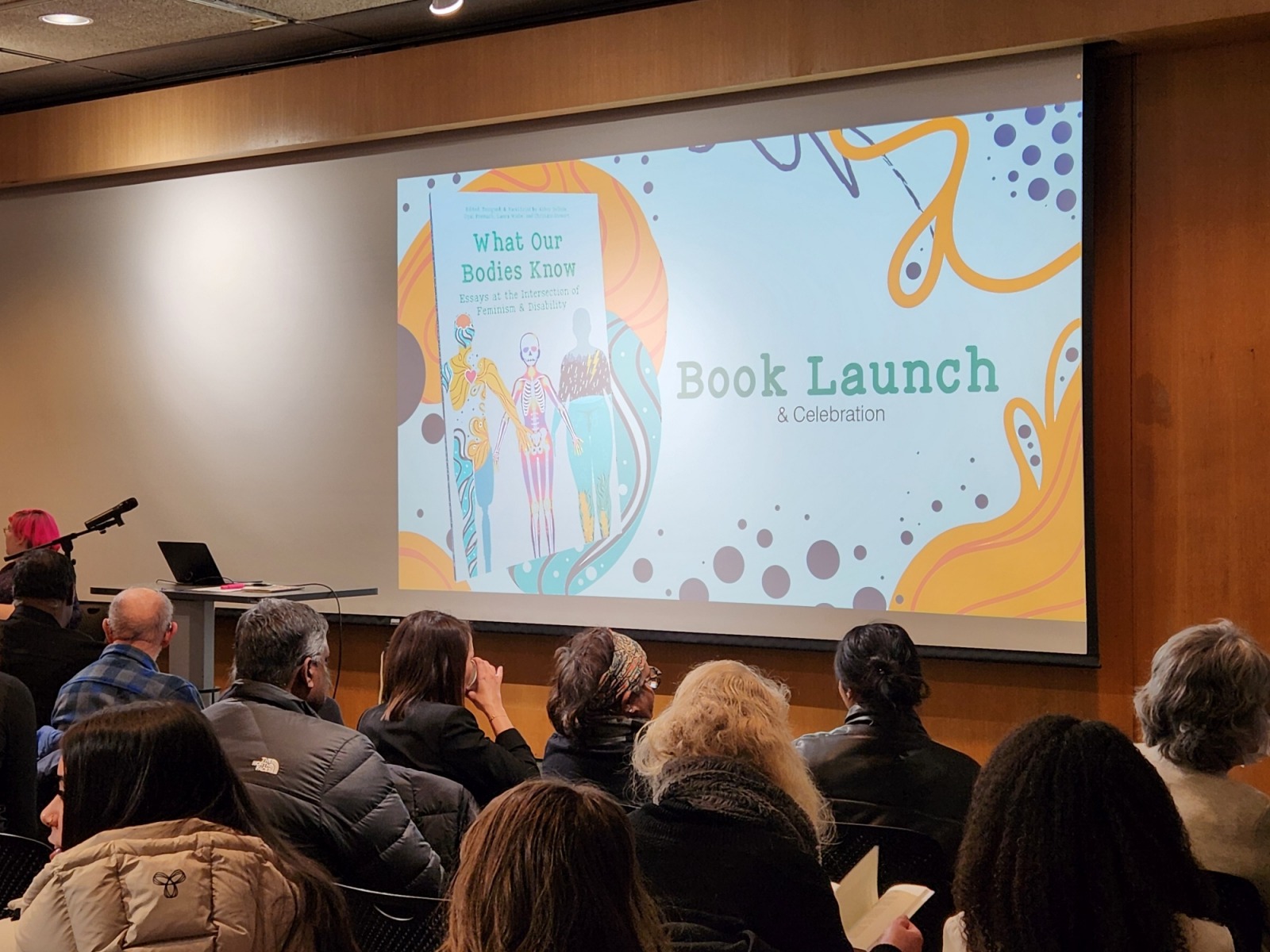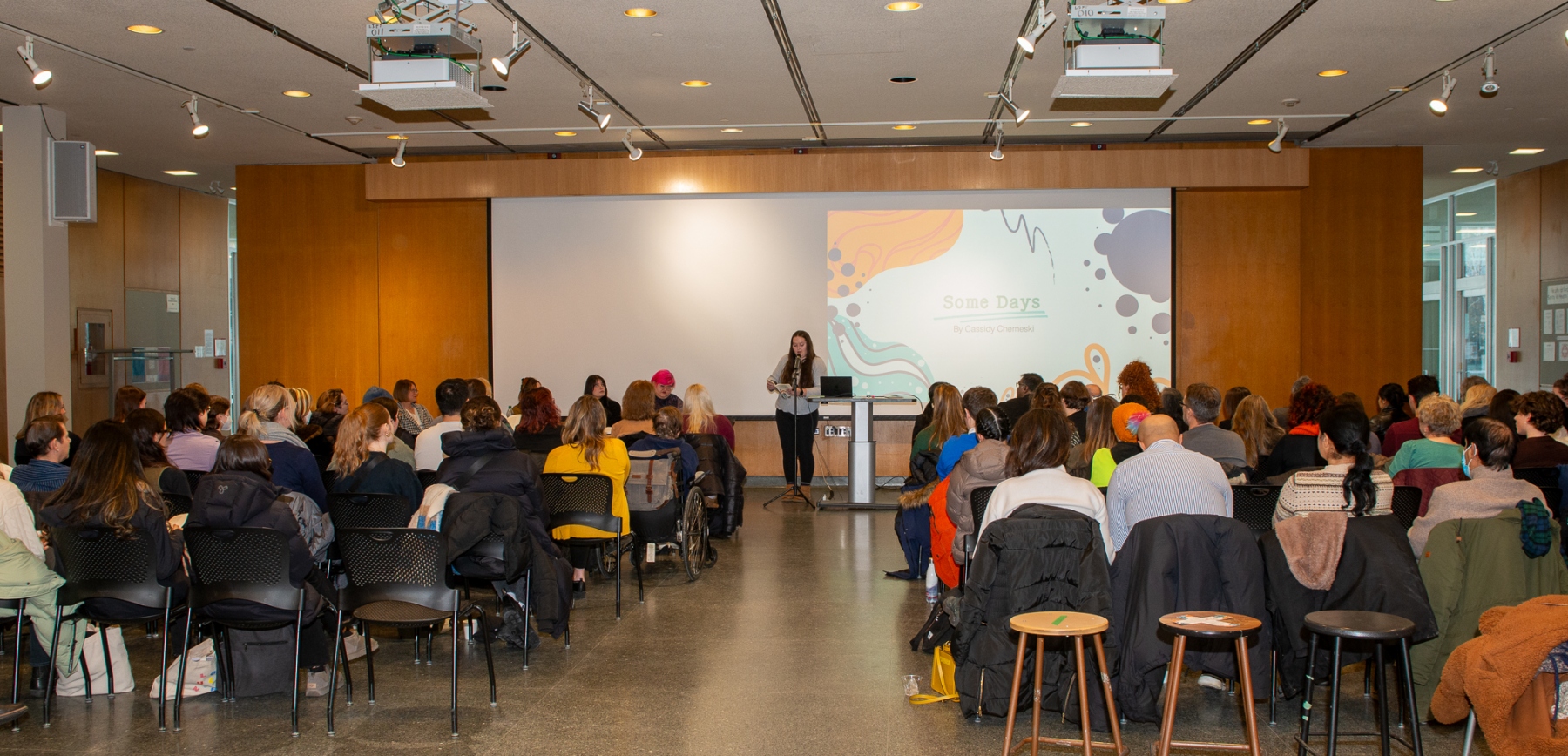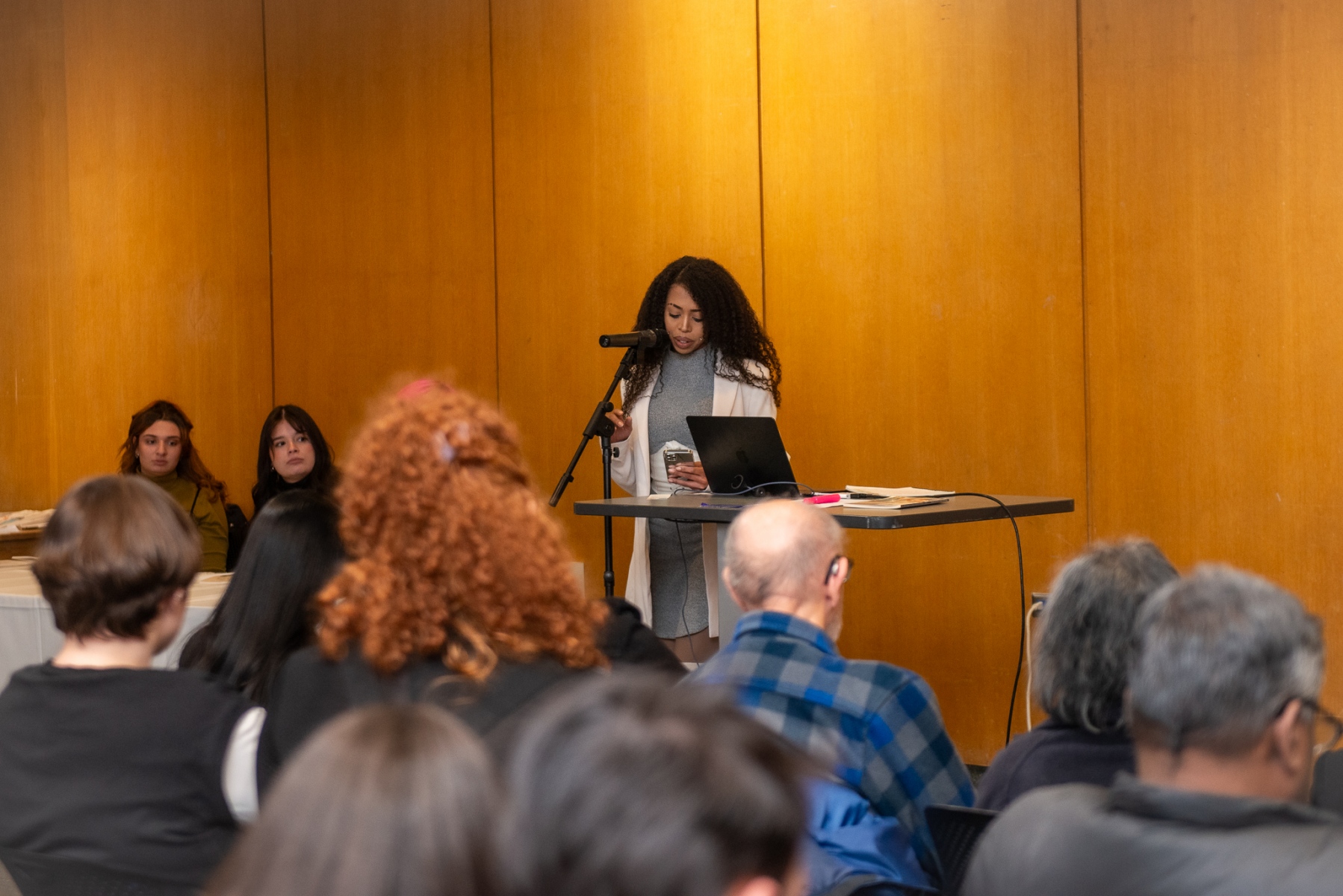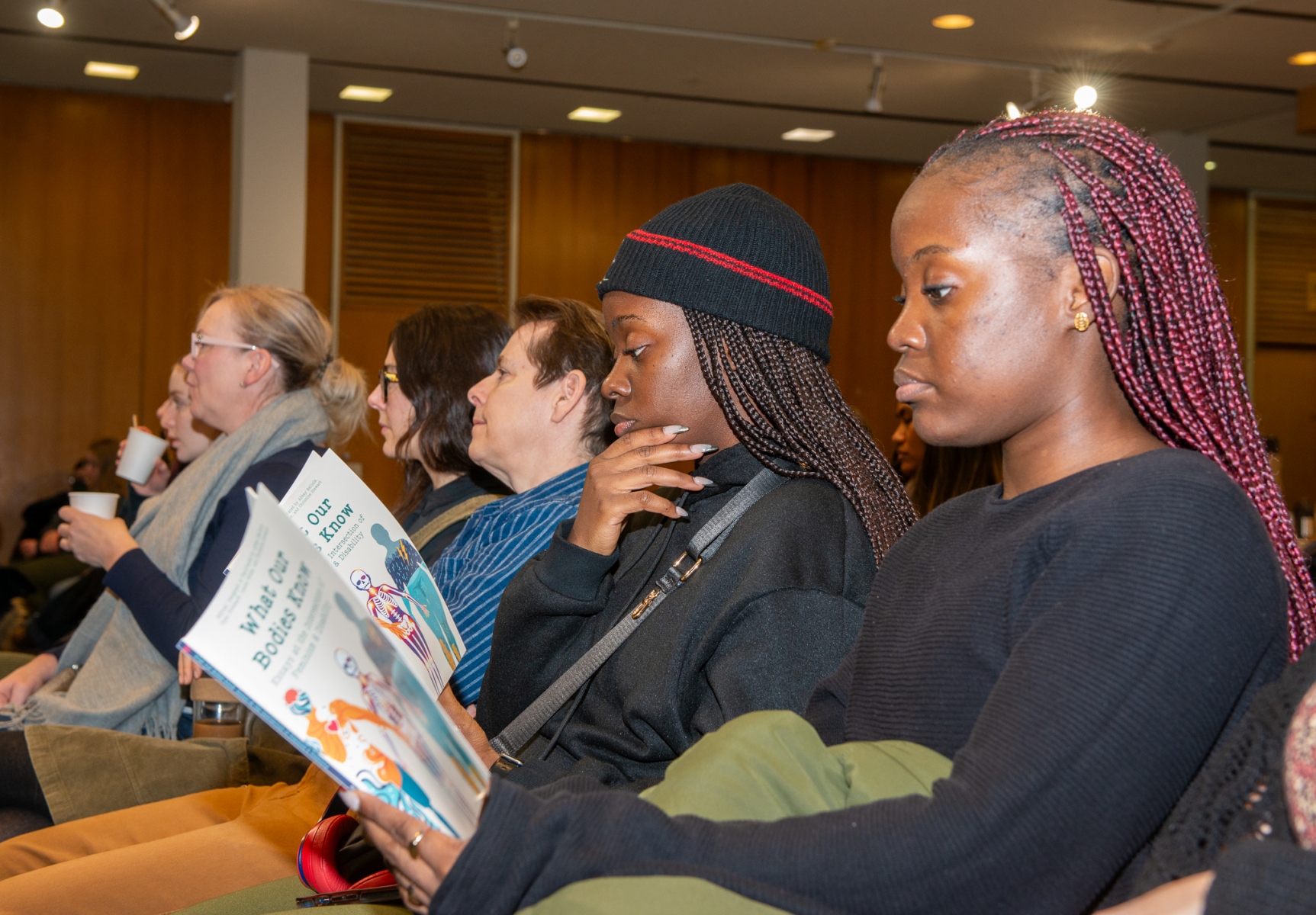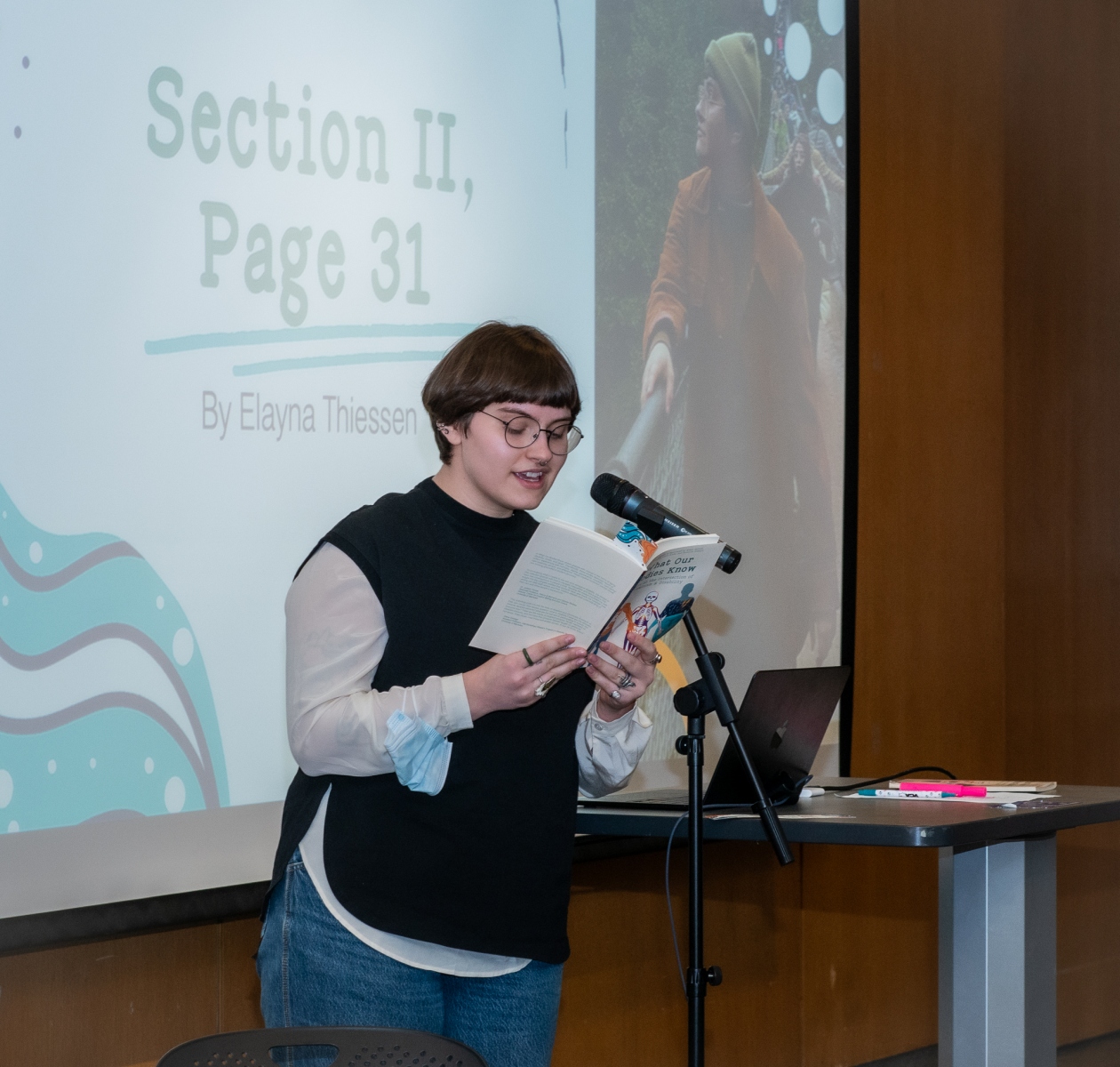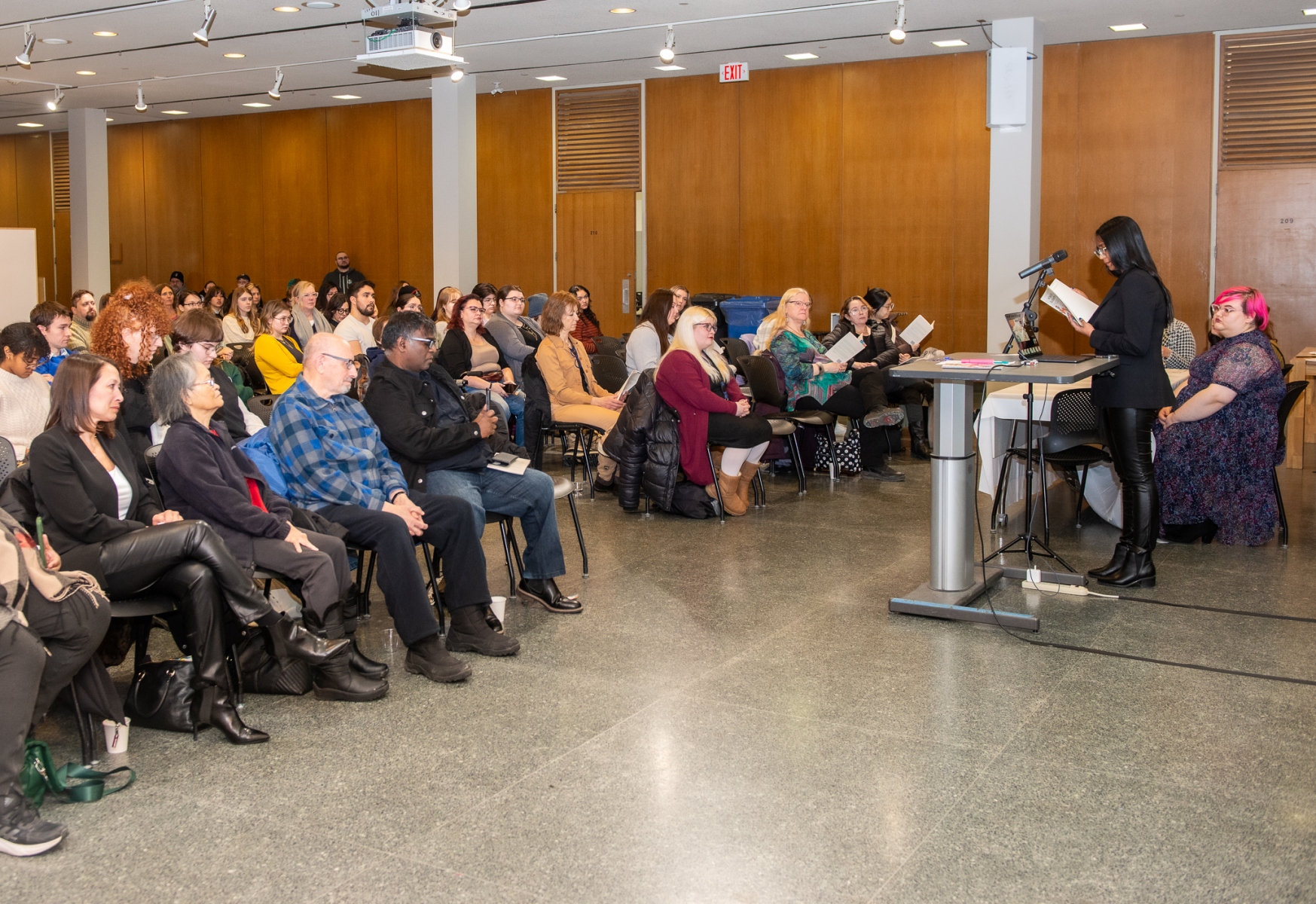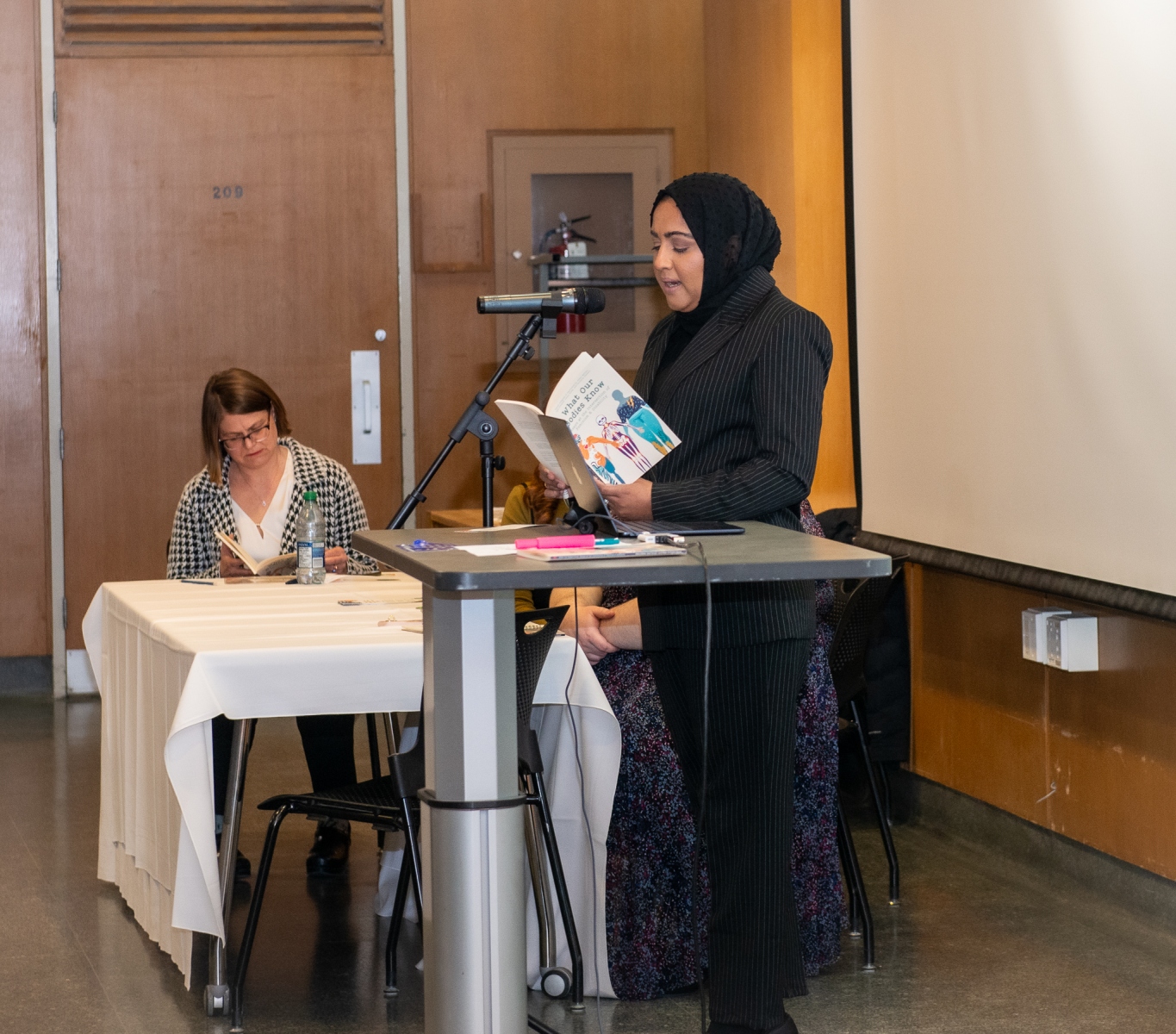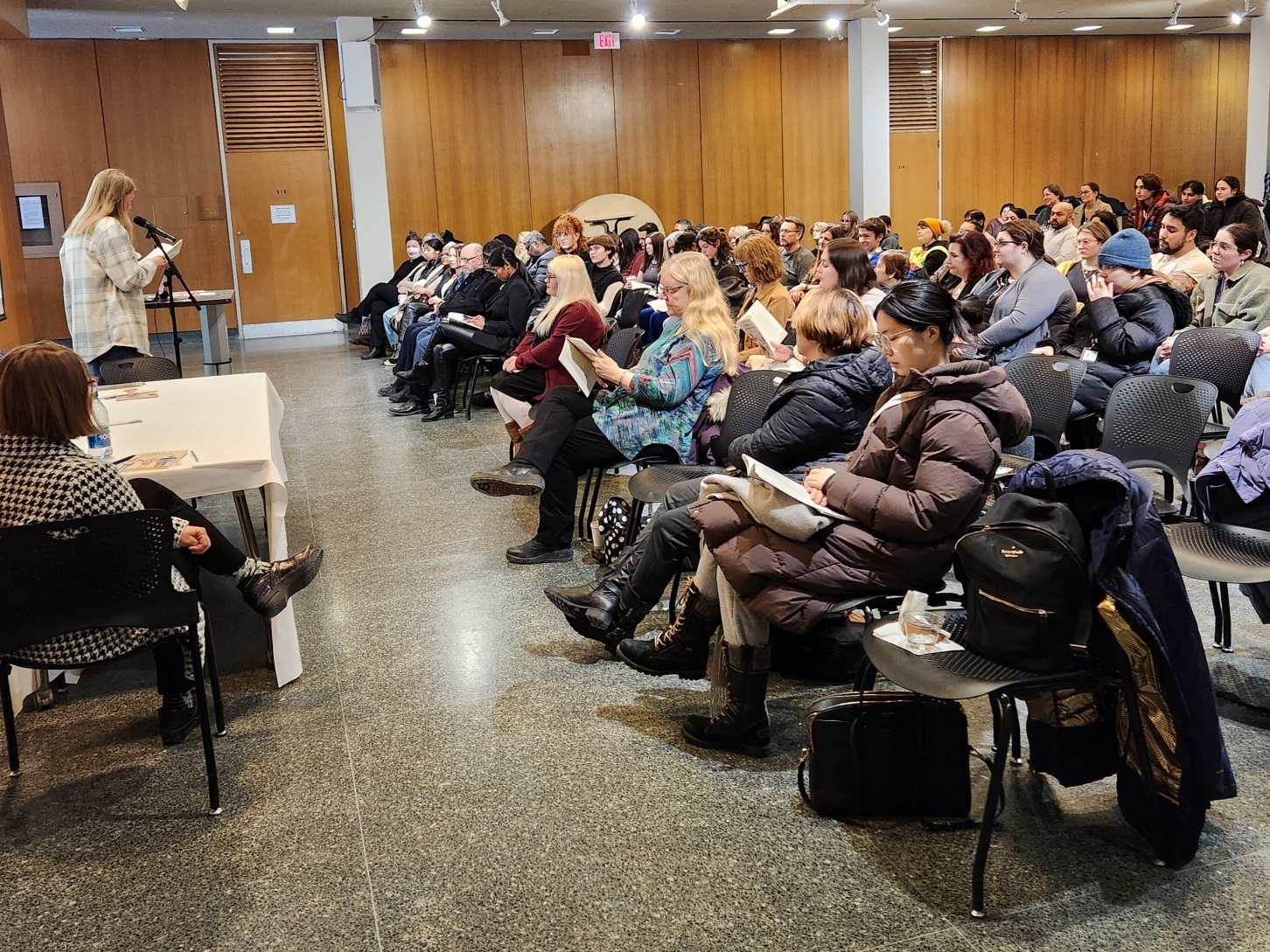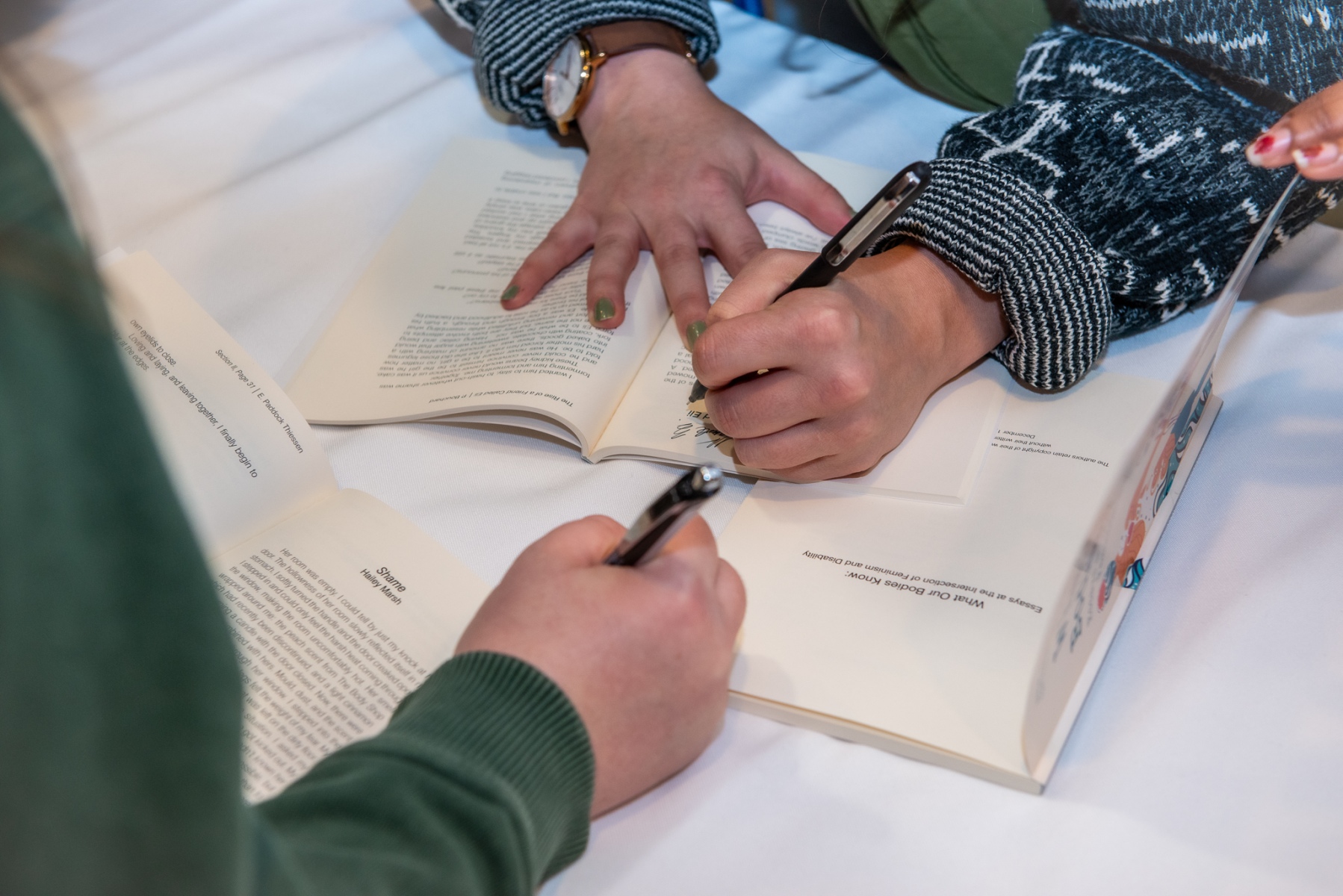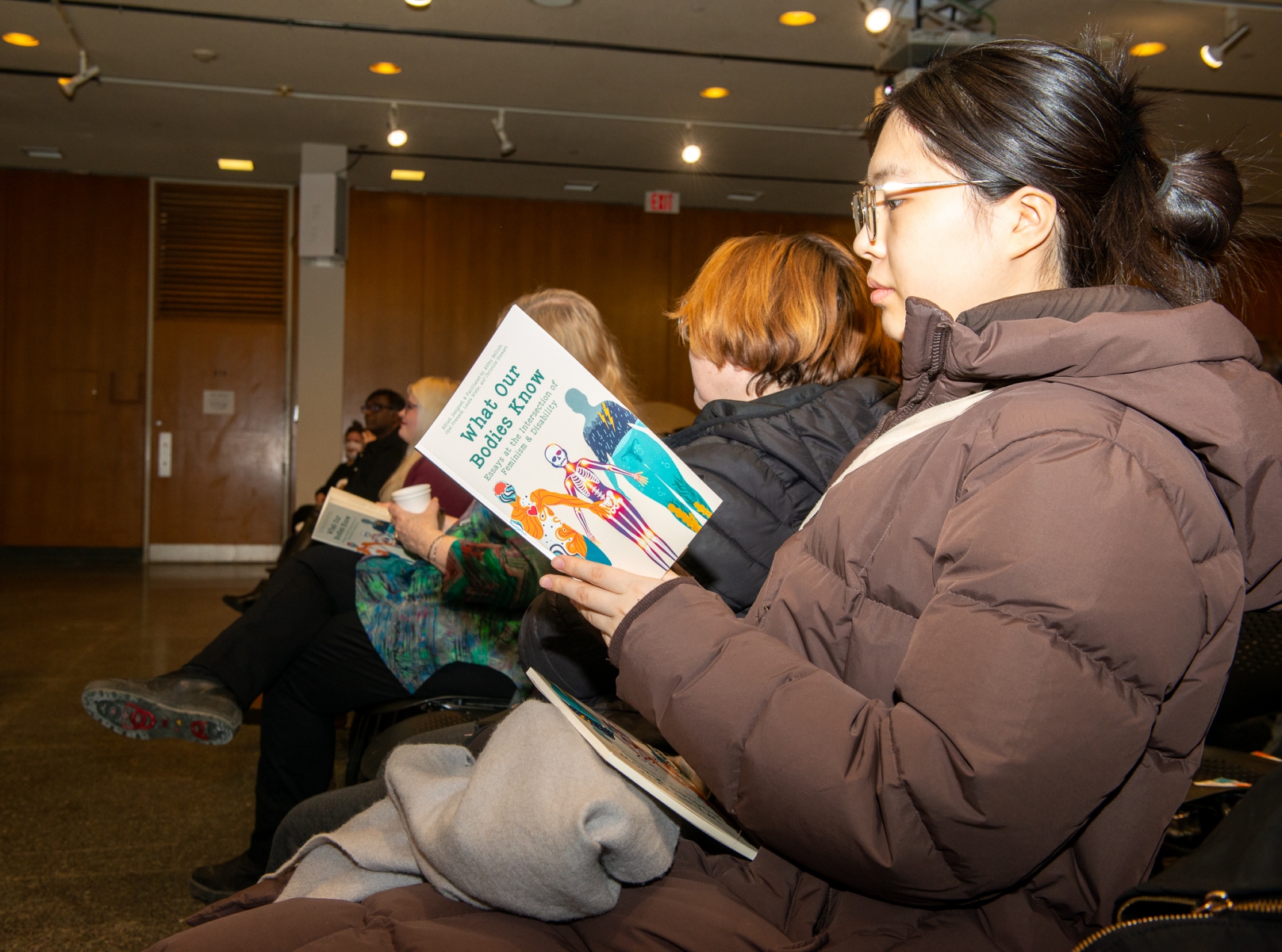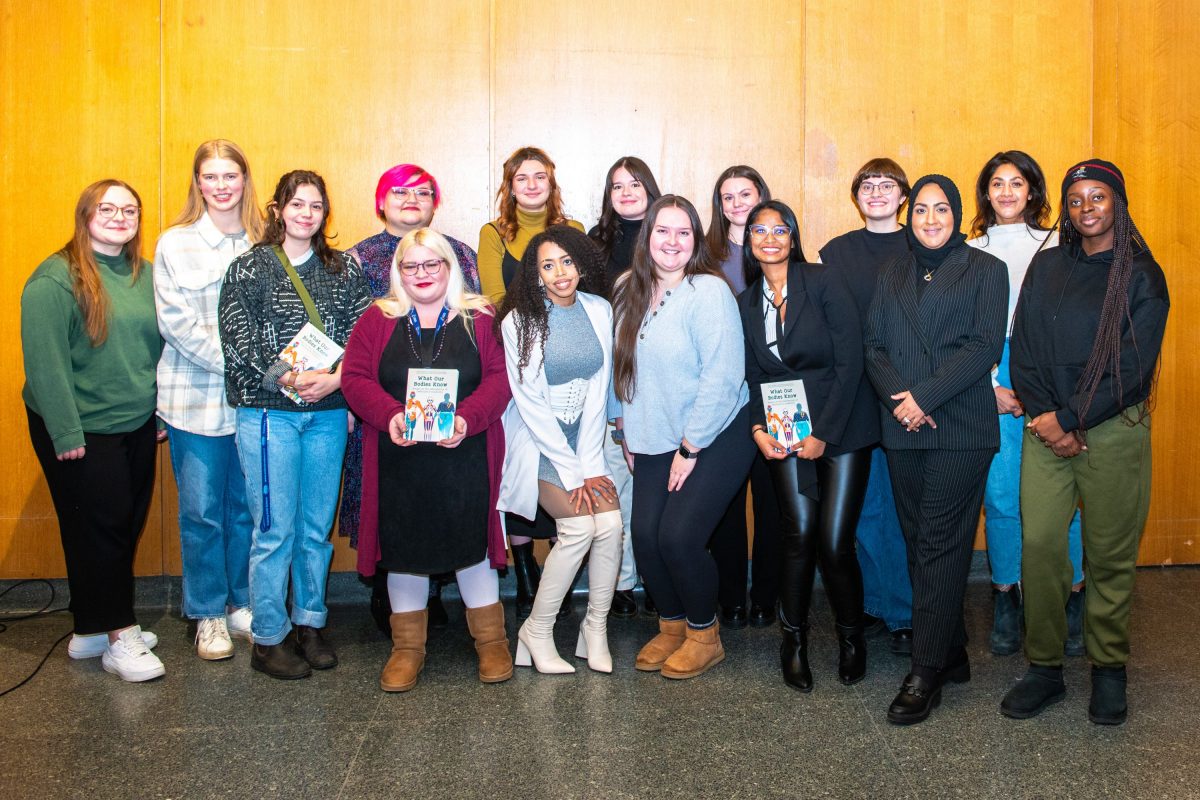
Students from WOMN 2540 at the launch party for their publication: What our Bodies Know
Disability is part of all of our experience
Student anthology born out of class assignment
On January 19th, students, faculty, family and friends gathered to celebrate the launch of What Our Bodies Know: Essays at the Intersection of Feminism & Disability. The book is an anthology of 28 creative nonfiction pieces written by students from the course WOMN 2540: Feminisms and Disability in Contemporary Literature from the women’s and gender studies program (WGS) in the Faculty of Arts. Professor Christine Stewart collected the essays from students who had taken the class over three terms – winter 2022, spring 2022 and fall 2022.
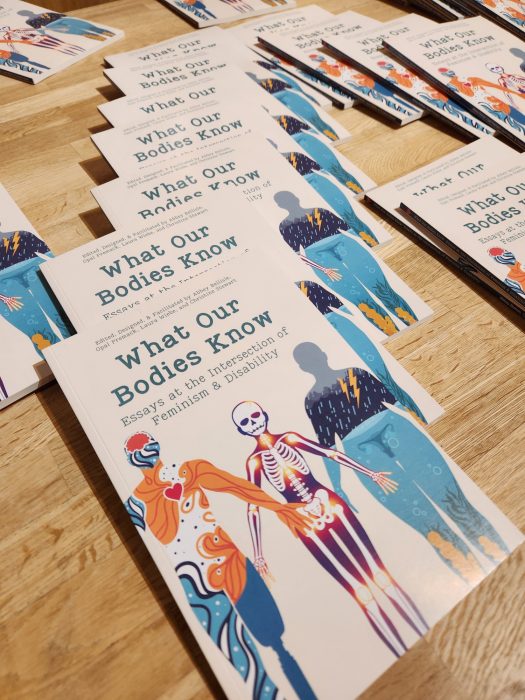
‘What Our Bodies Know’ is a student anthology.
At the launch party, eleven students read from the collection and then the authors circulated through the crowd signing copies for their families and for themselves similar to a class yearbook gathering. The students were clearly proud to showcase their work that covered a broad range of topics such as hearing loss, surviving domestic violence, bipolar disorder, ADHD, emotionality and learning disability.
Each essay in What Our Bodies Know is less than 750 words. They were originally created as class assignments. Themes and concepts shared by scholars from both WGS and disability studies were touchstones for the essays and covered ideologies of normalcy; stigma; appearance; invisibility; care-taking and care-receiving; issues of access and inclusion; impairment/difference; and intersectionality. Students were asked to identify a shimmering moment from their lives that connected thematically to one of the course’s over-arching concepts. Dr. Stewart shared that the student essays “sprung from this moment.”
“This was a new kind of writing for most students, and it challenged them on multiple levels,” said Dr. Stewart. “Many began to rethink their personal relationships to their bodies and/or their diagnoses, their disability or the disability of a loved one. These essays reveal just slivers of those rich and important thinking processes.”
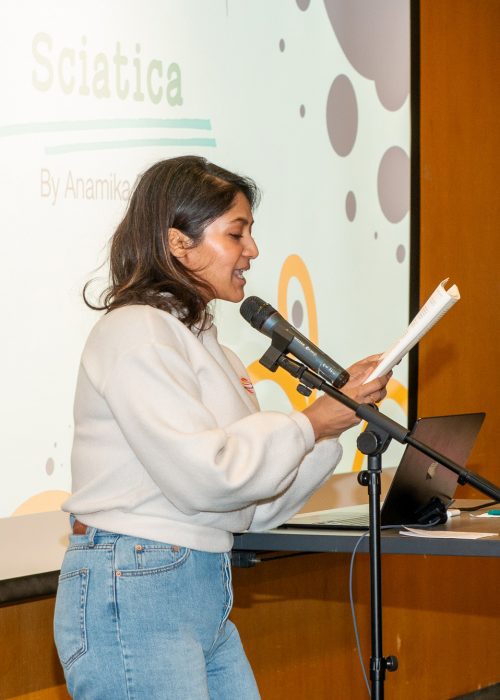
Anamika Deb
Student Anamika Deb, a political studies major and WGS minor, admitted that at first she was “scared to expose” herself, “I drew a blank on what to write about because my disability is not visible.” She explained that once Dr. Stewart confirmed her sciatica qualified as a topic, it ended up being comforting to write about it and then share it out loud to the crowded room. “A horrible experience led to an amazing thing,” exclaimed Deb with a smile on her face as she held up the book and gestured to her parents and brother who came to support her at the event.
Dr. Tina Chen, Vice-Provost (Equity), noted that Dr. Stewart created “a safe space for students” through a creative assignment. “As I listened to their essays, I was moved by the power of each student’s lived experiences,” she shared. “Projects and courses like this encourage us to think about ableism at our institution and to come up with new ways we can support students.”
The project extended well beyond the class assignment. The book cover was designed by social work student Opal Premack. Three additional students contributed to the book’s editing and design. The book launch event was also organized by students. This involvement has added to the overall learning experience of the course, providing an opportunity for students to practice skills including design, editing, time management, decision making, promotion and event planning.
Environmental design student Abbey Bellisle was part of the team who brought the book to life, “I have read the essays countless times over the past year, and was moved each time. It was very special to meet the authors and hear them share their stories in person.” Bellisle is hoping to pursue a masters’ degree in interior design or architecture and noted that this experience helped “open her eyes to disability.” She added that, “There is no excuse for a lack of accessibility in 2024. Courses like WOMN 2540 and this anthology project can aid in educating a future designer, like me, to make thoughtful and informed choices when it comes to accessibility in design.”
Dr. Stewart hopes to produce a future edition showcasing essays from more students who take the course, starting with the essays from students that were in the fall 2023 class.
The first printing of What Our Bodies Know is sold out! To add your name to a list to obtain a copy from the second printing, email Christine.Stewart@umanitoba.ca.
Learn more about the women’s and gender studies program in the Faculty of Arts.
Learn more about experiential learning at the University of Manitoba.







